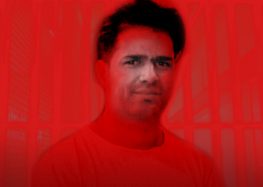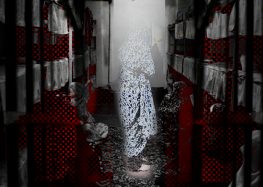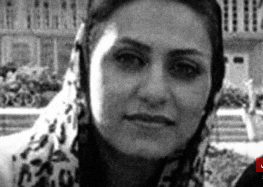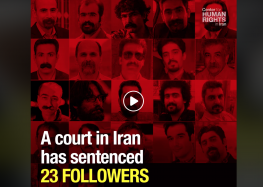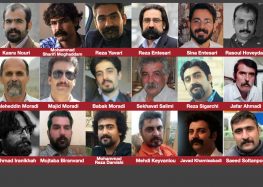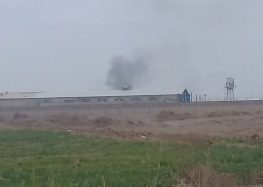Sufi Prisoners Illegally Being Held With Dangerous Inmates in Tehran Penitentiary, Say Families
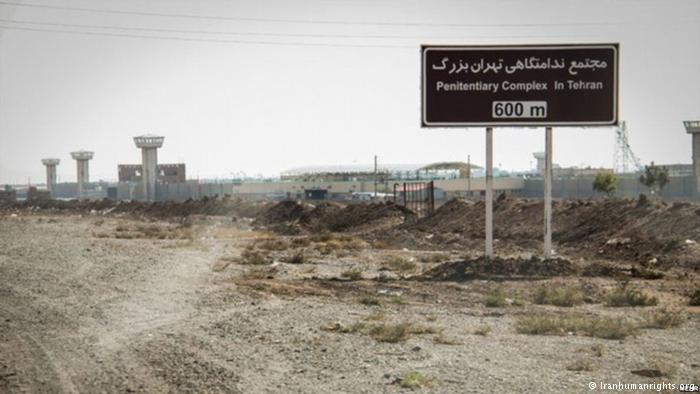
Dozens of Sufi prisoners are being illegally held in a ward for drug-addicted prisoners in the Great Tehran Penitentiary (GTP), one of their relatives told the Center for Human Rights in Iran (CHRI).
The source, who requested anonymity for security purposes, said a complaint by a group of the detainees’ families remains unanswered more than two months after it was filed.
“We, the families, first went to the Tehran Prisons Organization in late September [2018] and were told that the separation of prisoners is none of their business and we have to go to the Prisons Organization’s national headquarters,” the source told CHRI on October 30, 2018.
“We took our complaint there and said that these dervishes should not be in wards with methadone addicts or criminals with violent records,” added the source.
The source continued: “They told us to come back the following week. When we went back after a week, they told us they had sent a letter to the Tehran Prisons Organization in response to our complaint. Since then, we have been going to the Tehran Prisons Organization every day and they say they have not received any response. We don’t understand what’s going on. How is it possible that a letter sent by one organization has not reached another organization after two months? Why can’t we get an answer?”
The source said that since August 2018, 52 Sufi Gonabadi Dervishes have been held in Ward 1, the GTP’s section for methadone-addicts, where inmate relations are known to be precarious and sanitary conditions are very poor.
According to Article 69 of Iran’s State Prisons Organization’s regulations: “All convicts, upon being admitted to walled prisons or rehabilitation centers, will be separated based on the type and duration of their sentence, prior record, character, morals and behavior, in accordance with decisions made by the Prisoners Classification Council.”
The families argue that the Sufi prisoners, who were arrested for attending protests in Tehran earlier this year, should be held in a ward for political prisoners to protect their safety.
“Ward 1’s capacity is for 100 prisoners but they’re holding 400 prisoners there,” the source added. “Drugs are not allowed in but all kinds of pills are easily available.”
Meanwhile, eight Sufi inmates who took part in an August 29 sit-in to demand the release of female Sufi inmates held at Gharchak Prison, located south of Tehran, have been held incommunicado in solitary confinement with no access to their families for the past two months.
“Judicial officials are giving the families the runaround,” said Faezeh Abdipour, the wife of one of the inmates, Mohammad Sharifi Moghaddam, in an interview with CHRI on October 10.
“Rostami, the prison’s judicial supervisor, says the prisoners are free to have visits and make phone calls. But when we went to Farzadi, the GTP’s director, he said higher officials, including Rostami, had ordered these prisoners to remain in solitary without visitation or phone access,” she said.
Abdipour did provide the officials’ first names.
According to a website run by Sufi Gonabadi dervishes, 300 Sufis have been imprisoned in the GTP since being arrested at a February 2018 protest near the home of their spiritual leader in Tehran. The protests left at least one dervish and three policemen dead.
At least 20 of the protesters were handed heavy prison sentences in August 2018. Eight of them were issued the sentences in absentia after they refused to appear in court to protest the denial of their due process rights. It is unknown how many of the remaining prisoners have since been tried or freed.
The Sufis of Iran’s Gonabadi Order believe in a different interpretation of Islam than the ruling Shia establishment. The Islamic Republic views any alternative religious belief system, especially those seeking converts, as a threat to the prevailing Shia order and has imprisoned dervishes in the past as part of an ongoing persecution campaign.

